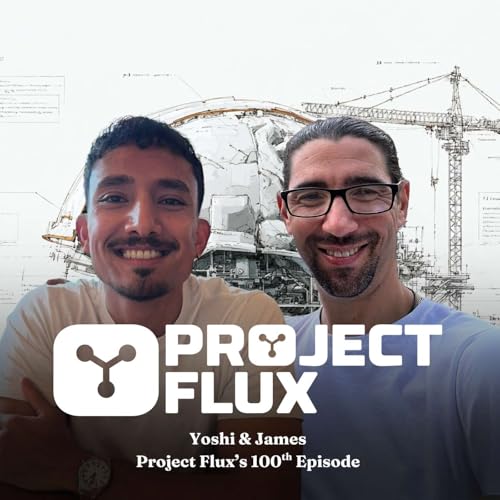Send a text
Summary
This interview explores the rapid evolution of AI in construction and architecture, focusing on how AI can transform design, optimize processes, and address industry challenges. Diego Padilla Phillips shares insights on multi-objective optimization, the linear nature of current workflows, and the future potential of AI to foster innovation and sustainability. In this insightful interview, industry experts discuss the future of architecture, AI, and construction. Topics include sustainable design, AI's role in project delivery, and the evolving skills of engineers and architects.
Key Topics
- AI-driven multi-objective optimization in design
- The linear and siloed nature of current construction workflows
- The potential of AI to foster innovation and creativity
- Challenges and opportunities in adopting AI in construction
- The future of sustainable and efficient building design AI's role in sustainable architecture
- The evolution of engineering skills in the AI era
- Future construction technologies and robotics
Chapters
00:00 Introduction to Decarbonization and Innovation
02:59 Innovation Beyond Gradual Improvements
05:55 Eureka Moments in Design and AI
08:41 Challenges of Working in Silos
11:39 The Limitations and Misconceptions of AI
14:39 Job Displacement: AI as a Tool for Professionals
18:32 The Future of Design: AI's Role in Building Usage
21:42 Balancing Iconic Design with Practicality
25:04 Sustainability and Longevity in Building Design
27:25 The Future of Engineering Education
28:57 Training the Next Generation of Engineers
31:11 The Impact of Technology on Design Processes
32:28 The Dual Nature of AI in Engineering
34:43 Looking Ahead: The Future of the Industry
34:45 Envisioning the Future of Architecture
36:37 Designing for Efficiency and Sustainability
39:35 The Role of Robotics in Construction
42:26 Creativity and Human-Centered Design
44:10 Adapting to Change in Engineering Education
46:12 Driving Change for a Sustainable Future
47:25 james .mp4
48:02 Unleash the Code 1 Second.mp3
48:05 Introduction to Project Flux
48:05 Exploring Key Themes in Project Flux
48:16 Introduction to Project Flux
48:16 Exploring the Core Principles of Project Management
Diego's Linked in https://www.linkedin.com/in/padilladiego/
Support the show
Subscribe to the Project Flux Newsletter!
All our podcasts commentate on the weeks hottest news brought to you by the Project Flux Newsletter!
Get a step ahead on the world of AI and tech, subscribe and get the weekly newsletter to your inbox every Monday!
Sign Up to Newsletter
Project Flux is independently owned, funded, and operated by its founder. Any external references or features are for community benefit only and do not imply endorsement, control, or ownership.
 49 m
49 m Feb 24 202647 m
Feb 24 202647 m Feb 20 202646 m
Feb 20 202646 m 49 m
49 m Feb 13 202650 m
Feb 13 202650 m 42 m
42 m Feb 6 202647 m
Feb 6 202647 m 1 h y 15 m
1 h y 15 m
